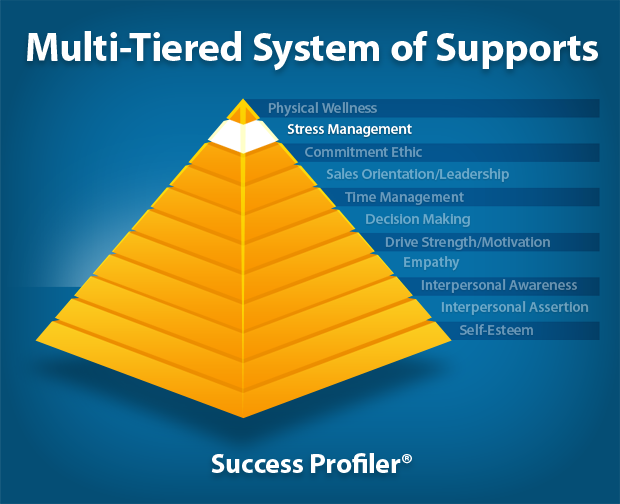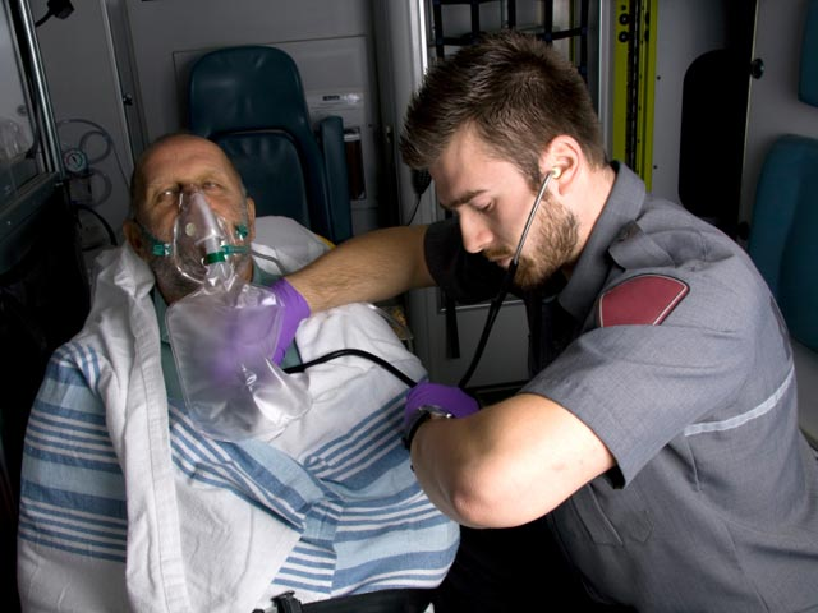
Mulit-Tiered System of Supports or MTSS is a term used to describe an evidence-based model of schooling that uses data-based problem solving to integrate academic and behavioral instruction and intervention (Florida’s MTSS Project). This definition brings together the works of academic instruction and behavioral intervention. This movement is catching on because it has become evident that you cannot separate academic performance from social/emotional learning and development.
You might ask yourself what stress management has to do with MTSS. The answer – EVERYTHING!
First of all, stress management is a key skill in our social/emotional development process.
Stress is an unwanted response that is felt when our mind cannot deal with a challenge. Where do these unwanted psychological (mind) and physical (body) reactions come from?
Fight vs. Flight Response
Over the centuries our reactions developed to help us deal with life. When faced with danger from an enemy, our bodies were designed to send us a jolt of energy that allowed us to stay and fight or run away. Our hearts beat faster and our blood vessels constrict. Only after the danger passed did we notice this burst of energy had left our hearts pounding and our hands sweating. These symptoms usually passed quickly and we were happy to trade the uncomfortable feelings for the bursts of strength we needed to survive.

In today’s society, however, the same reaction that helped our ancestors survive danger can cause us trouble. Our powerful fight versus flight system kicks in at the wrong time. Our minds and bodies all too often react to challenges as if our lives depended on our responses. When we most need to be calm, our stress reactions deliver the wrong results. When this occurs often it results in high levels of stress and difficulties in managing our anger. Fighting to the death or running away are usually not the best ways to react to life’s challenges, are they?
Physical Reactions to Stress
Short term bodily reactions to stress are things like pounding of the heart and fast breathing. Physical reactions to stress can
cause health problems including:
- Difficulty remembering

- Difficulty in breathing
- Sleeplessness
- Severe headaches
- Muscle aches
- Sweating
- Dryness of mouth
Left unchecked, stress can also lead to more severe health problems such as high blood pressure, heart conditions and much more. The key is to learn how to manage stress. While we cannot always control many of the things that lead to stress in our lives, we do have control over one thing – our own minds. We can learn to deal correctly with stressors so that our response to a stressful situation is positive. A stressor is an event, situation, or thought that we allow to cause us stress. Stress management skills will help us learn to use stress, not get rid of it.
How Does Stress Impact Academic Performance?
There is a direct correlation between stress, physical wellness and self-esteem as measured by our Personal Skills Map® in our Success Profiler® program. When stress persists for a long period of time, the desire to take care of our bodies diminishes. Our eating and sleeping habits are impacted by long term stress. When the long term effects of stress impact physical wellness, it also lowers self-esteem. Proper feelings about oneself (self-esteem) are highly dependent on our ability to manage stress and to take care of our bodies (physical wellness). The impact of long term stress leads to lower feelings of physical wellness and self-esteem and greatly affects academic performance. Constantly feeling tired, difficulty in paying attention, hyperactivity, and problems with interpersonal relationships are all signs of a lack of stress management skills that impact academic performance.
Improving Stress Management Skills
The first thing to help improve stress management is to become aware of the need for change in your life. Start with a good assessment. Use our Personal Skills Map from our Success Profiler program to properly assess stress management. With over 8.5 million administrations and 120 research papers attesting to its effectiveness it is clearly the instrument of choice. Once the Personal Skills Map assessment is completed, and if the stress management scale is low, the stress management skill intervention system will be assigned and delivered in our Conover Online system.
Want to learn more about our Success Profiler, Personal Skills Map, and intervention systems? Select the button below to sign up for a free trial.
